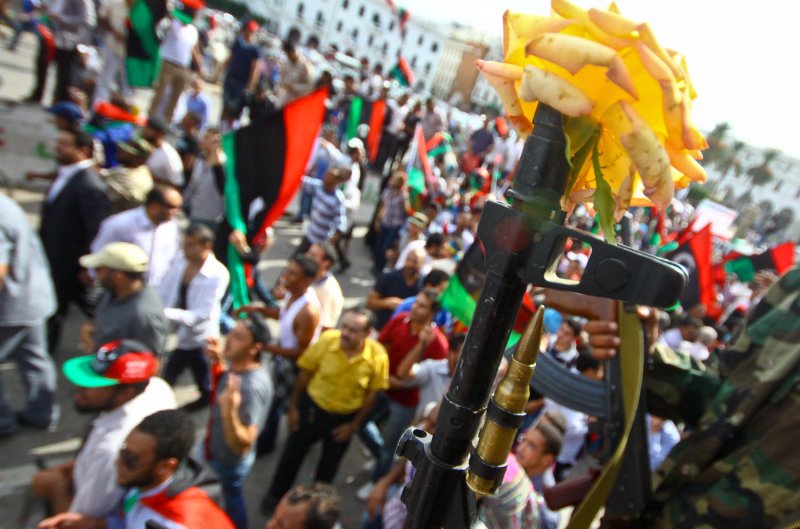1 of 2 | A flower is put in a gun of a Libyan National Transitional Council (NTC) fighter as people celebrate in the streets of Tripoli following news of the fall of Sirte, Libya, the last holdout of Libyan former leader Moammar Gadhafi, who was killed in the attack on October 20, 2011. UPI/Amru Taha |
License Photo
WASHINGTON, Oct. 26 (UPI) -- A post-revolutionary Libya embracing Islamic law has sparked concern, though authorities said it's not a significant impediment to democratic development.
Mustafa Abdul Jalil, leader of the transitional Libyan government, said during the weekend that a liberated Libya has adopted Shariah -- Islamic law -- as the main law of the land.
U.S. Secretary of State Hillary Clinton said from Tripoli last week there would be no tolerance for any group that undermines democracy in Libya, however.
Jalil later stressed that Libya was a moderate Islamic country and Ali Suleiman Aujali, Libya's ambassador to the United States, was quoted by CNN as saying Westerners may not understand the meaning of Shariah.
"Shariah law, Islamic law, it is not against democracy. It is not against equality; is not against the relations with the other countries based on interests and respect and cooperation," he said.
Moderate Islamist party Ennahda took the plurality of the vote in a weekend vote for a constitutional assembly in Tunisia. Party leaders said it was tolerant of other groups and embraced the rights of women.
Robin Wright, a senior scholar the U.S. Institute of Peace, told CNN that Islamic laws would likely play a significant role in whatever form of democracy emerges from the so-called Arab Spring.
"Whether it's Tunisia, Libya, Egypt, and beyond -- as countries redefine their political systems, they are going to want to use the values of their faith to help define what they want next. But that doesn't mean necessarily they're going to be rigid Islamist regimes," she said.





